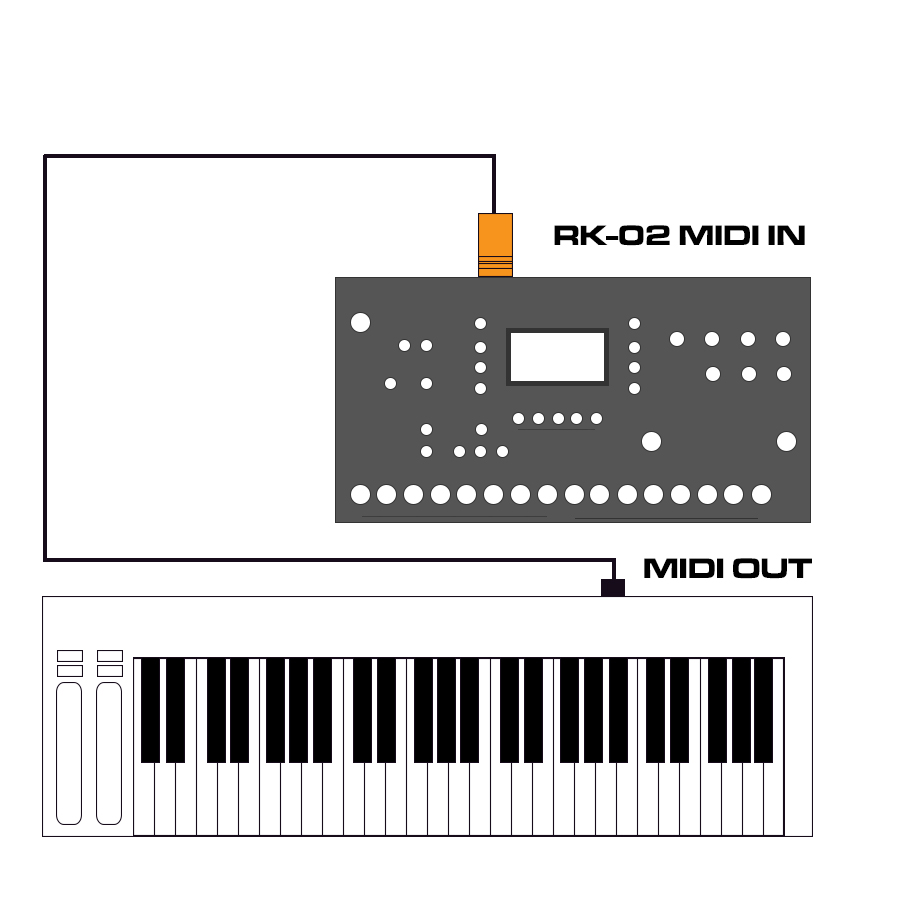THE POLYPHONIC OCTATRACK
Oh my god, are you f@cking kidding me!!?
I’ve been whining about the Octatrack being 8 part monophonic since I spent a year hurting my brain learning how to use it – such a crazy manual and such a different work flow – because it’s a groove box, and I don’t particularly dig groove boxes. I want to control my instruments with relationships, and have one knob per function access to everything all at once. I’m a weirdo, I know…
But I have ached for a modern desktop polyphonic sampler for years. The old school samplers are brilliant, but they are massive, and not portable in the modern/post 911 sense. I never want to miss another flight because TSA doesn’t know what a sampler is.
Yet, the ability to sample a Steinway, or my Jupiter-6 and not have to bring it on the plane is fundamental, and samplers are so much fun.
All of my records in the last few years say proudly that “no computer was harmed in this production” so I couldn’t and wouldn’t dream of using a laptop or a tablet in my performances. Never ever. I’ve not been so inspired or productive since I dumped the computer completely from my studio and there’s no going back for me (part of why I dislike groove boxes, and have abandoned the idea of doing it all in a eurorack case too.)
SO DIG THIS:
The Retrokits RK-002 smart midi cable allows us to load firmware into it (using a computer, I know, I know…) and do all sorts of things. I’ve added the ability to transpose the Roland Boutique sequencers, create a sequencer from the Korg NanoKontrol, transmit sysex to the S3000 and more.
This is the PolyMUX beta firmware. Loaded into the 002, it allows the incoming midi to be alternated between a selectable number of tracks on the Elektron Octatrack.

Here I’ve loaded a simple waveform onto tracks 1-4, all the same pitch, and with the RK-002 connected as shown I am able to play chords.
And I still have 4 more tracks for loops and beats and other stuff.
This is amazing. Stunning. So exciting. So exciting that I actually wrote to Elektron, I don’t know who the designers or team leaders for Octatrack development are, but I do have a dear one in their company so I wrote to him. I corresponded back in 2015 with the folks in the home office and asked them about polyphony and the Octatrack – they indulged me briefly, but finally admitted that they didn’t think the CPU was robust enough, nor was there enough memory to support the addition of polyphonic tracks. I gave up, and that’s pretty much then I started whining… hahahaha…
And yet, here is a novel solution. While I would gladly give up 1/3 of what the Octatrack can do for true polyphonic tracks, why not deploy this tiny scrap of code (8 lines) to internally permit the Octatrack to note hocket, or track hocket, so allow us to choose 2-8 voices of polyphony internally, and then apply the master track’s midi channel and effects to the output routing?
This would be an amazing upgrade for the Octatrack, and really re ignite our interest in it. At least it would re ignite my interest in it. This instrument has been vital to me for live performance, but honestly there are some things which have really caught my eye lately, and I’ve got high hopes for them in terms of beat making, sampling and the like. But there are still no multitimbral, polyphonic samplers in sight with any serious degree of editing, analog filters, or output routing felxible enough to become a contender in a live set from someone like me.
It’s a big wide hole in the world, and this little trick is fascinating step toward filling it up!

5 Comments
What the what in the what
This is awesome it never even occurred to me to try this.
I want to get the RK-002 but I honestly don’t understand it. Seems like I could use it but I don’t fully get it.
@stratusncompany – I so totally feel you here. I HAVE one and sometimes I feel the same way. I actually wrote to them just today and suggested that I take a stab at rewriting some of their documentation… I get a lot of requests for some fairly basic information every single day, and when I go and study the source I see that talking about this stuff at all creates mental blocks, but when we describe midi plugs as “five pin midi din connectors” we have already lost about half of the people who actually want to understand us… right then and there.
:)